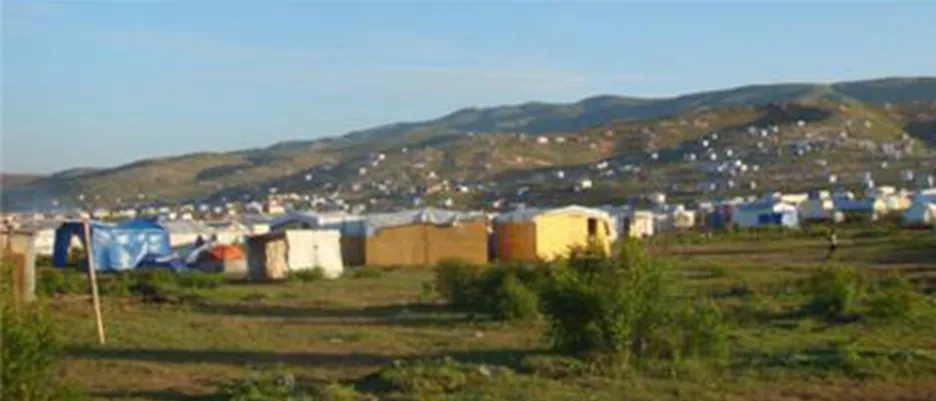Haiti Canaan
Water supply and urban infrastructure for an inevitable city
Semester Project M.A. Landscpe Architecture, Winter Semester 2012/13
Topic
"After any major disaster, tent cities are inevitable. While their ideal life-span is counted in weeks or months, many continue to exist for years while the nation rebuilds. In the case of Haiti, the widespread devastation that ravaged the already fragile country has lead to displaced populations with no other options in the foreseeable future. This is especially clear in the case of Canaan. While many tent cities were set up in all open spaces that were left in Port au Prince, Canaan was settled by people who intentionally moved to this region to escape the overcrowding and scarce resources of the city. The land that Canaan is settled on is
uniquely suited for long-term occupation in that it is ecologically stable and has had no existing construction. While the physical attributes of Canaan are promising, the policy that exists forbids the legitimizing of the settlement. In order to create a livable place for the inevitable city that Canaan is, several steps must be taken with the help of the government and the settlers of Canaan. These steps include securing land ownership of the site, policy changes allowing permanent structures to be constructed, evaluating existing conditions, working with the residents to establish needs and wants, setting up viable economic opportunities, building public infrastructure, and encouraging local initiative in developing their own homes." (Text: Doran)
Task
Gökce Iyicil is developing a water management concept for Canaan which will solve the sanitation, water supply and drainage problems in the area. As all the water issues are interconnected to each other, water can be collected with the drainage system and also by rainwater harvesting system and then can be used as a water source for irrigation and for households. Sanitation can also be reused in the area (especially grey water). For the treatment of water very easy solutions could be found like compost toilets or sand filters. Together with her we will develop an urban infrastructure concept for the area, inc. open space concept for the growing settlement.
Supervision
Prof. Regine Keller, Thomas Hauck (LAO), Gökce Iyicil (TUM, Institute of Water Quality Control),Prof. Christian Werthmann (Universität Hannover) in cooperation with Prof. Peter Rutschmann (TUM, Chair for Hydraulic and Water Resources Engineering)
